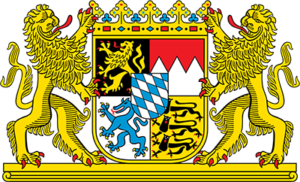Biotech Companies from Munich’s start-up center IZB convince prominent partners with excellent research
July 31, 2023
Important deals mark a dynamic first half of 2023 for the biotech hub.

Innovation and Start-up Center Biotechnology (IZB) in Martinsried near Munich with Campus Hotel and Faculty Club G2B (Gateway to Biotech) on the left.
Martinsried near Munich, July 31, 2023 – The Munich Innovation and Start-up Centre Biotechnology (IZB), one of the leading biotechnology centres in Europe with 40 resident biotech start-ups and five life science companies, today provides a positive overview of a very busy first half of 2023 despite the difficult financing environment in the biotech industry.
“I am proud that our start-ups, first and foremost Tubulis, were able to enter top-class partnerships in the first half of the year. Not only does this provide them with significant funding, but it also draws attention to our startup hub and validates the cutting-edge research of our companies. I am no less excited about the fact that some of the IZB start-ups have become clinical-stage companies in recent months,” said Dr Peter Hanns Zobel, Managing Director of the Biotechnology Innovation and Start-up Centre. “Moreover, I am pleased that several infrastructure projects have finally begun that will further strengthen our research location and make our broad international network of excellent scientists grow even closer together.”
Financings and partnerships of IZB start-ups
Particularly noteworthy is the billion-dollar deal Tubulis signed with Bristol Myers Squibb (BMS) in April. The companies entered a strategic partnership to develop differentiated antibody-drug conjugates (ADCs). Through the license agreement, Tubulis is eligible to receive an upfront payment of USD 22.75 million and milestone payments potentially totalling over USD 1 billion plus tiered royalties on net product sales. BMS gains exclusive rights to access Tubulis’ Tubutecan payloads in combination with Tubulis’ proprietary P5 conjugation platform for the development of a selected number of highly differentiated ADCs to treat solid tumors.
In June, Thermosome announced its participation in the IMAGIO Consortium, that aims to improve the clinical outcomes for lung cancer, liver cancer and soft tissue sarcoma patients through less invasive treatments. The consortium, consisting of over 30 clinics, academic institutes, healthcare companies, and patient organizations, was granted a EUR 24 million fund from the Innovative Health Initiative, supplemented by additional funding from industry partners to conduct research. As part of the cooperation, Thermosome received EUR 1.3 million in funding and will collaborate with Cologne University Hospital to test its lead drug candidate THE001 in combination with a novel technology.
Early May, Invitris was chosen by INCATE (Incubator for Antibacterial Therapies in Europe) as the first company to receive 250,000 EUR in “Stage II Funding” that will allow the company to complete its spin-out from the Technical University of Munich (TUM) and further its mission to scale the production of phages, phage-derived and other antimicrobial proteins in the fight against Antimicrobial Resistance.
Secarna Pharmaceuticals and SciNeuro announced in March their partnership to research and develop therapies directed at targets that play a substantial part in diseases of the Central Nervous System (CNS). Under to the agreement, Secarna will use its commercially validated locked nucleic acid discovery and development platform, LNAplusTM, to produce and profile antisense oligonucleotide candidates against targets specified by SciNeuro that are relevant to the treatment of CNS conditions.
IZB alumnus AMSilk GmbH, a world leader in supplying innovative high-performance bio-based silk materials, announced in early April that it had successfully raised an additional EUR 25 million in an extended Series C financing, now totalling EUR 54 million. The financing, led by existing investors ATHOS (AT Newtec) with participation from Novo Holdings, Cargill, and MIG Capital, will enable the biotech to speed industrial scale-up and expand commercial operations to meet the increasing demand for bio-fabricated silk protein materials.
Move-ins and move-outs on campus
Even though it is sometimes hard to say goodbye, it is good to see companies grow out of the IZB because of their successful development. After 5 years at the IZB, adivo, a pioneer in the development of species-specific therapeutic antibodies for pets, has moved to new offices in Puchheim, near Munich, to begin the next stage of its corporate development. The three times larger office and laboratory space will accommodate the company’s growing R&D endeavours and maturing pipeline, as well as the employment expansion.
Early this year, Invitris, a start-up with a universal platform technology that can generate in vitro synthetic proteins at the highest yields and purity in a single process, moved into the IZB with the goal of scaling up both drug discovery and production. The company is focusing on antimicrobial proteins like bacteriophages and endolysins to battle the most serious health and economic danger in the next decades: multidrug-resistant diseases.
Leon-nanodrugs (LEON), a pharmatec company with a proprietary technology that increases the efficiency of the formulation process of active ingredients into nanodrug carriers, selected the R&D capacities at the IZB as the optimal place for the completion of product development for LEON’s manufacturing devices. LEON also plans to showcase and the devices and provide process development services to clients using the company’s equipment.
Viopas Venture Consulting opened an office in the IZB, thus expanding its business activities to Munich, Germany. The consulting firm offers support to start-ups in the life sciences, biotech and pharma sectors and assists them with business and financial planning, partnering and licensing, M&A, as well as technical and clinical pharmaceutical product development.
Advances and innovative discoveries originating from the IZB
Early 2023, Neuron23, Inc., a San Francisco-based clinical-stage biotechnology company co-founded by IZB start-up Origenis and focused on developing precision medicines for genetically defined neurological and immunological diseases, announced the start of first-in-patient Phase I clinical treatment of NEU-723 in patients with Parkinson’s disease. NEU-723 is a small molecule targeting brain-penetrant leucine-rich repeat kinase 2 (LRRK2) and only the second in the clinic for the treatment of Parkinson’s disease.
Thermosome, a drug development company specializing in targeted tumor therapies, received regulatory approval from the German Federal Institute for Drugs and Medical Devices (BfArM) and the responsible Ethics Commission to conduct the first-in-human trial for their lead program, THE001 in March. The compound will be evaluated in patients with soft tissue sarcoma. In April, the first patient was dosed with lead candidate THE001.
Eisbach Bio, a company targeting the molecular machines that drive human disease, achieved an important milestone end of April with the start of a Phase 1, first-in-human clinical trial for EIS-10700, a small molecule that targets the RNA helicase of SARS-CoV-2. The COVID-19 antiviral, which emerged from Eisbach’s drug discovery platform, will be tested in healthy volunteer to assess the safety, tolerability, and pharmacokinetics of the helicase inhibitor.
Another notable achievement was the launch of Insempra‘s first functional component for consumer goods. The compound, known as alpha-lonone, is a biotechnologically created 100% natural flavor and aroma ingredient that will be manufactured and supplied for the food and cosmetics markets by partner Axxence Aromatic GmbH.
IZB-Alumnus, Vivoryon Therapeutics, a clinical stage biotechnology company focused on creating novel small molecule-based therapies, provided a positive update of their ongoing clinical studies of its lead candidate for the treatment of Alzheimer’s disease (AD), VIVA-MIND and VIVIAD at the end of March. a small molecule drug with the potential to significantly change the Alzheimer’s disease therapy landscape, has demonstrated encouraging preliminary data. Subsequently, in July, the company presented encouraging safety data and the independent Data Safety Monitoring Board (DSMB) decided that the study should continue as planned, with no further DSMB meetings required until the end of the study.
Expansion of leadership teams
In terms of personnel, many IZB start-ups significantly strengthened their management teams in the first half of the year. In January, Christian Pangratz, previous CEO of sterna biologicals, was appointed CEO of Atriva Therapeutics, a biopharmaceutical business pioneering the development of host-targeting antiviral treatments, that moved into the IZB last year. Insempra named its new Chief Operating Officer (COO) in March. Dr. Lin Römer comes to the company from AMSilk, another IZB-founded company, where he was co-founder and Chief Technical Officer (CTO). In April, IZB alumnus Enno Spillner joined publicly listed biosimilar play Formycon. Enno Spillner has over 23 years of experience and outstanding expertise in the biotech business and was most recently CFO at Evotec SE. Rainer Gebhart, a seasoned manager in the biotech and life sciences sectors, was appointed as the new site manager at ChromoTek in June, to oversee the research and production facilities along with the commercial sections. Secarna welcomed Dr. Konstantin Petropoulos as new Chief Business Officer to expand the company’s industrial partnering business and strengthen the financial base for its ambitious future growth plans. Petropoulos was previously employed for three years at Leukocare AG, based in the IZB. Origenis welcomed industry expert Prof. Hendrik Liebers as Chairman of the Board to participate in the company’s strategic development. Last, but not least, the pharmatec company leon-nanodrugs appointed Dr. Hans Frickel as CEO in July.
IZB Events
A record number of sixteen teams presented their research projects and innovative approaches to nearly 50 renowned life science investors and industry decision-makers at the 8th Life Science Pitch Day in July. High-Tech Gruenderfonds (HTGF), Leaps by Bayer, and Boehringer Ingelheim, the partner of the event, praised the high quality of the pitches of the many startups. During the panel discussion “Mapping the Course – Pharma Perspectives on Identifying Trends and Setting Strategic Directions”, Dr. Laura Lane, VP Venture Sciences Europe at Eli Lilly & Co, Ingo Klöckner, Head of Portfolio and Reporting at Leaps by Bayer, Dr. Joachim Vogt, Director, Search and Evaluation International at AbbVie and Dr. Sebastian Kreuz, Executive Director at Boehringer Ingelheim Venture Fund had a lively exchange about the current trends in the life sciences industry. Dr. Frank Hensel, Principal of HTGF, and Dr. Laura Pedroza, Investment Manager of HTGF, moderated the event. Until late in the evening, investors such as Dr. Kay Balster from HTGF, Dr. Sascha Berger from TVM Capital, Dr. Marianne Mertens from Apollo Health Ventures or Dr. Peter Neubeck from Kurma Partners took advantage of the exchange with the exciting project teams.
The Biotech Press Lounge, an established gathering spot for journalists and multipliers from the biotech, pharmaceutical, and venture capital sectors, held its 16th Edition in March this year. Around 70 guests met in the IZB Faculty Club G2B (Gateway to Biotech) for three keynote speeches on the drug therapies and key technologies of the future and subsequent networking. Dr. Karl Nägler from Munich’s VC Wellington Partners presented hypotheses about drug therapies of the future. Dr. Daniel Reichart from Harvard Medical School presented an atlas for human heart cells, based on which personalized therapies for heart diseases can be developed in the future. Heimo Adamski, managing director of the IZB start-up 4Gene, reported on its platform technology for producing refined molecules that could change the world. The event was moderated by Anouschka Horn from Bavarian Television (Bayerisches Fernsehen).
Almost once a month, top researchers at the Martinsried Campus meet at the Facuty Club G2B (Gateway to Biotech) as part of the IZBrunch networking event to get to know each other and exchange ideas. In January 2023, IZB welcomed Christine Schuberth-Wagner, CSO Catalym GmbH, and Dr. Kikuë Tachibana, Director at the MPI of Biochemistry. Univ.-Prof. Dr. med. M. Subklewe, Senior Physician and Head of Immunotherapy in Hematology, LMU Clinic Munich, as well as Dr. Garwin Pichler, CEO Preomics, explained their research areas in February 2023. In April the IZB could win Dr. Alejandra Mørk, CEO KLIFO A/S and Prof. Dr. Thorben Cordes, Head of the Research Group “Physical and Synthetic Biology”, LMU Biozentrum for a presentation. Very exciting were the presentations of Dr. Dominik Schumacher, CEO Tubulis, and Prof. Julian Grünewald, TUM, in May 2023. Prof. Dr. Karl Duderstadt, head of the research group “Structure and Dynamics of Molecular Machines”, MPI for Biochemistry and Jens Klein, CEO Insempra, presented their research areas very clearly in June 23.
Strong foundations for growth and innovation
In the first half of 2023, some long-awaited infrastructure developments were kicked off.
In February, the expansion of the so-called “science line” was started. In the future, the extended subway line 6 will link the Martinsried science campus to other Munich science locations such as the Technical University (TU) in Garching and the LMU in Maxvorstadt. The official groundbreaking ceremony was attended by Bavaria’s Minister-President Dr. Markus Söder, together with Minister of Transport Christian Bernreiter, Minister of Science Markus Blume, and Dr. Peter Hanns Zobel, Managing Director IZB, amongst others.
Only a few meters away from the IZB, at the Grosshadern Campus, the construction for LMU’s state-of-the-art University Hospital for Paediatric and Youth Medicine has started in March this year. The New Hauner, with around 200 beds, will house paediatric clinics and surgery, as well as an integrated social paediatric center and other facilities. The Free State of Bavaria is funding the 420 million euro budget and providing additional funds to cover future increases in construction costs and possible construction risks.
In April this year, the Max Planck Institute of Biochemistry (MPIB) celebrated a very important milestone: 50 years since its founding. On March 23, 1973, the MPIB was inaugurated with a speech from then-mayor of Planneg, Richard Naumann. No one realized it at the time, but this historic event marked the beginning of what would later become one of Germany’s most renowned and advanced research institutions in the field of life sciences, with a reputation second to none.
The IZB is also expanding its network. In a meeting, hosted by start-up SCG Cell Therapy, the center connected with the Zhangjiang Hi-Tech Park located in Shanghai, China, and exchanged ideas to support the growing life science scene in the two biotech hotspots of Europe and Asia with the goal to intensify the interactions between the sites and support start-ups in expanding their global footprint. In addition, a Japanese delegation, including Yosei Ide, Senior Vice Minister of Education, Culture, Sports, Science and Technology of Japan, visited the renowned life science hub in Martinsried. Dr. Peter Hanns Zobel, Managing Director of the IZB, presented the site to Minister Ide and his delegation and explained in detail the development of the start-up centre with its two sites in Martinsried and Weihenstephan.
About the Innovation and Start-up Centre for Biotechnology (IZB) in Martinsried, Munich
The Fördergesellschaft IZB mbH, founded in 1995, operates the Innovation and Start-up Centers for Biotechnology in Planegg-Martinsried and Freising-Weihenstephan and has developed into a leading biotechnology center. 40 biotech companies and five life science firms with over 700 employees are currently based on 26,000 m2. Here, work is being done on developing drugs for the most serious diseases, such as cancer, Alzheimer’s and various autoimmune diseases. A key criterion for the success of the IZBs is the physical proximity to cutting-edge research on the Martinsried/Grosshadern campus and the Weihenstephan campus. The new infrastructure measures such as the Faculty Club G2B (Gateway to Biotech), the IZB Residence CAMPUS AT HOME, the Elhardt chemistry college, the two kindergartens Bio Kids and Bio Kids2 as well as the two restaurants SEVEN AND MORE and THE BOWL Food Lounge are also location factors that are highly valued by the founders of the company. Successful companies that emerged from the IZB include Corimmun (today Janssen-Cilag), Crlelux (today Wuxxi AppTec), Exosome Diagnostics (bought by Bio-Techn), ibidi, Immunic Therapeutics, Medigene, Micromet (today Amgen), MorphoSys, Octopharma or Rigontec (now MSD) as well as SIRION Biotech (today Perkin Elmer). More information at www.izb-online.de
Press contact and photo material requests:
Susanne Simon, Head of Press and Public Relations
Fördergesellschaft IZB mbH, Innovations- und Gründerzentrum Biotechnologie
Am Klopferspitz 19
D-82152 Planegg-Martinsried
Tel.: +49 (0)89/55 279 48-17
E-Mail: ed.enilno-bzi@nomis;
Website: www.izb-online.de



